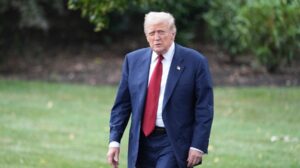The Dictatorship
Texas Democrats head to Illinois to deny Republicans a quorum on redistricting
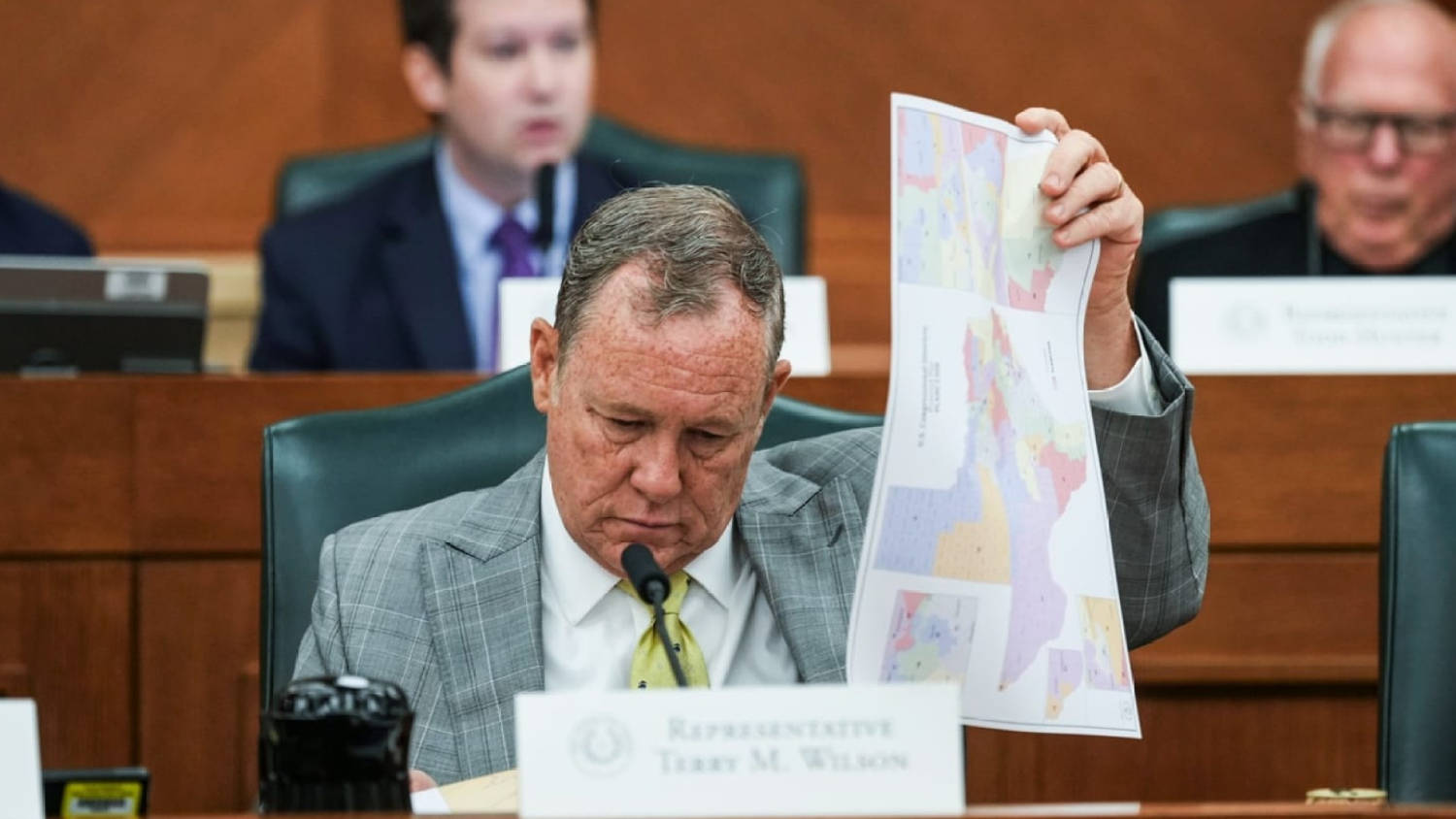
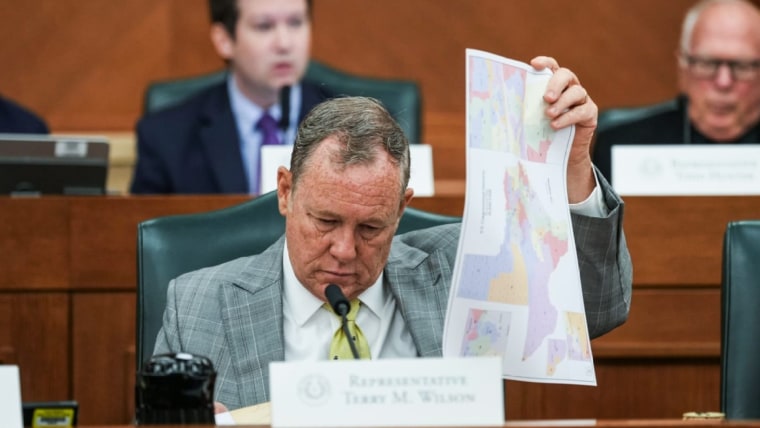
-
Now Playing

-
UP NEXT
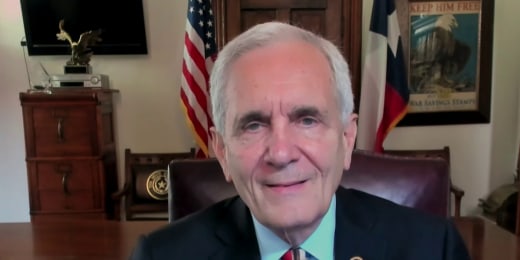
Doggett calls Texas redistricting map part of Trump plan to ‘win next year’s election this year’
11:44
-
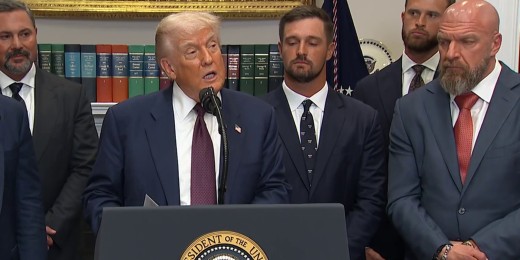
Health equity expert calls Trump’s school fitness test plan ‘political theater’
07:13
-

Minneapolis mayoral candidate Omar Fateh wants to build a city ‘that works for everyone’
07:55
-

‘Going the wrong way’: Colorado Gov. Polis on Trump’s E.U. tariff negotiations
06:44
-

William McNeil Jr., the Black man who was punched in a viral Florida traffic stop, speaks out
07:21
-

Trump seeks to take away birthright citizenship ‘from everyone’: League of United Latin American Citizens CEO
07:15
-

Adelita Grijalva could become the first Latina to represent Arizona in Congress
09:30
-
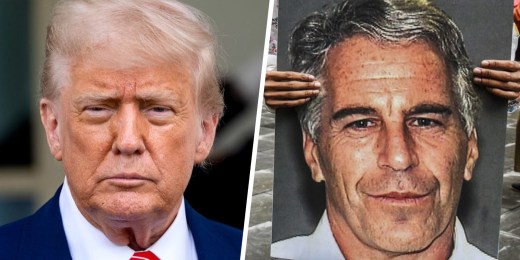
Writer foresees Epstein saga following Trump for the rest of his presidency
04:04
-

‘The American people deserve transparency’ about Epstein case: Rep. DelBene
08:07
-
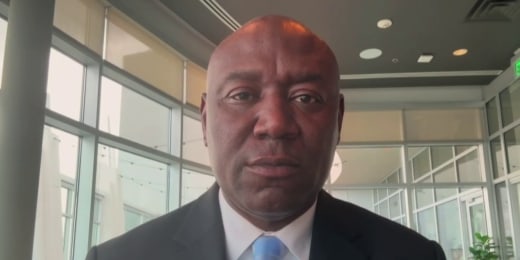
Trump DOJ seeking one day in prison for ex-officer in Breonna Taylor case is ‘insulting’: Ben Crump
09:24
-
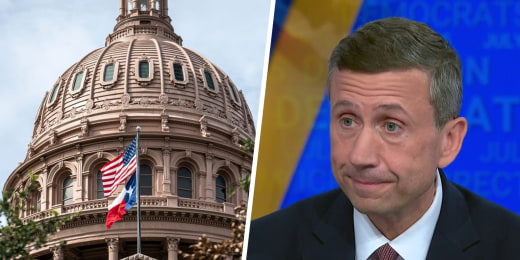
DNC Chair issues stark warning to Texas Republicans in redistricting battle
08:13
-

Two women dead and multiple people injured, including trooper, in Kentucky shootings, officials say
00:58
-
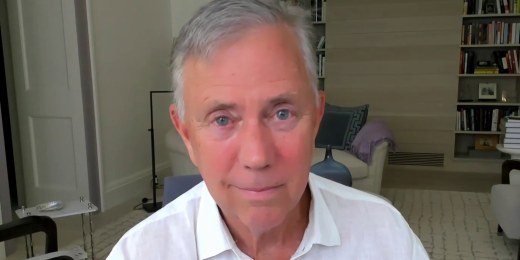
‘I just don’t know if I can count on FEMA right now’: Connecticut Gov. Lamont as hurricane season continues
06:10
-
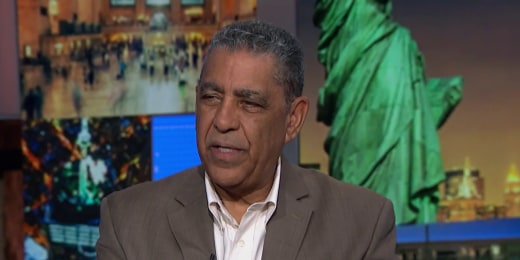
House Democrat compares Trump’s birthright citizenship fight to segregation
09:16
-
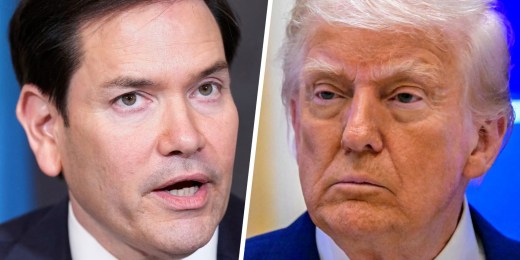
Mass layoffs at State Department have begun
03:02
-

Trump says he will ‘probably’ visit Texas as death toll from flooding climbs to 79
08:09
-

Desperate search for survivors continues after Texas flooding kills at least 79
02:23
-
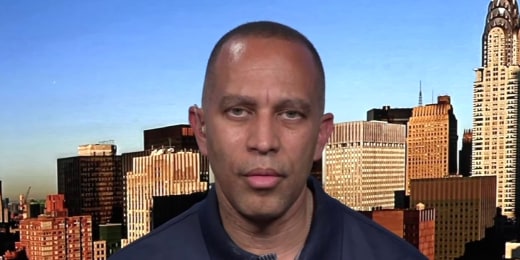
Rep. Jeffries: Trump’s megabill will ‘end effectively Medicaid as we know it’
10:44
-

‘Literally gets nothing done’: San Diego mayor calls out Trump admin’s ‘performative’ politics
06:13
BLN
-
Now Playing

Texas Democrats head to Illinois to deny Republicans a quorum on redistricting
04:48
-
UP NEXT

Doggett calls Texas redistricting map part of Trump plan to ‘win next year’s election this year’
11:44
-

Health equity expert calls Trump’s school fitness test plan ‘political theater’
07:13
-

Minneapolis mayoral candidate Omar Fateh wants to build a city ‘that works for everyone’
07:55
-

‘Going the wrong way’: Colorado Gov. Polis on Trump’s E.U. tariff negotiations
06:44
-

William McNeil Jr., the Black man who was punched in a viral Florida traffic stop, speaks out
07:21
The Dictatorship
Trump is reviving an outdated and problematic practice for American school children
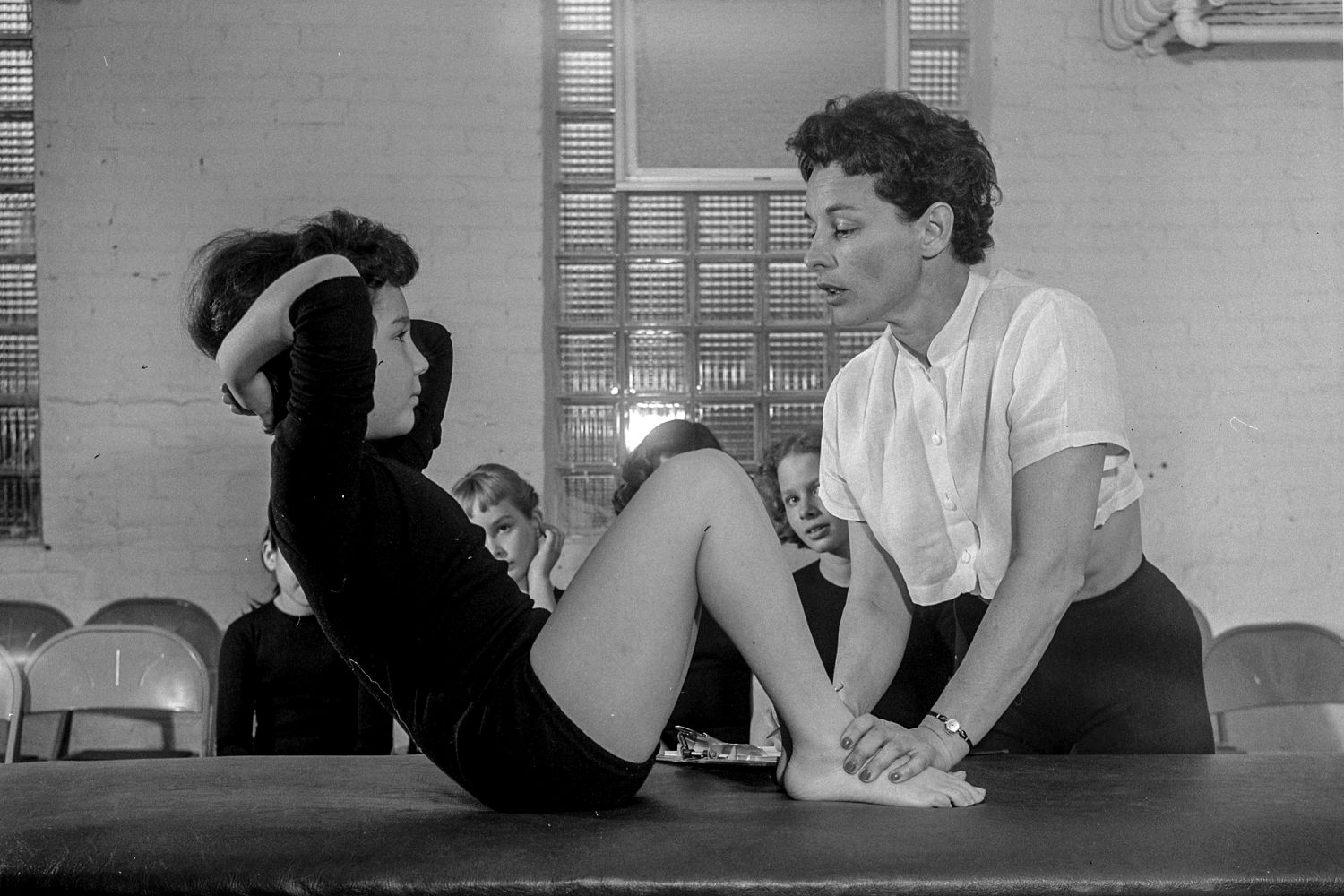
Everyone knows that American kids — and adults — need more exercise. If President Donald Trump’s recent decision to reinvigorate the federal Presidential Council on Sports, Fitness, and Nutrition and reinstate the Presidential Fitness Test helps get more kids moving, as he promises, it would be a welcome step in the right direction. But what we know so far about this reboot — and Trump’s record on fitness — should make us wary of its ability to actually combat the epidemic of sedentariness that contributes to all kinds of health conditions, from obesity to mental illness.
The executive order re-establishes the council, which Trump had renamed during his first term to place “sports” before “fitness,” a subtle choice that apparently prioritizes competitive athletics over recreational exercise. Much of the language of the new order echoes the initiatives of earlier administrations, highlighting issues of obesity and insufficient military preparedness. Most notably, though, the order hits a competitive note, aiming to “reward excellence in physical education” and to develop criteria for a Presidential Fitness Award, an initiative in keeping with maintaining “America’s global dominance in sports.”
During his first term, Trump famously disdained exercise as a dangerous waste of our ‘nonrechargeable battery’ — invoking a discredited 19th-century theory.
It is worth considering what an unlikely ambassador for fitness Trump is. During his first term, he famously disdained exercise as a dangerous waste of our “nonrechargeable battery” — invoking a discredited 19th-century theory — and is well known for his decidedly unhealthy habits. Back in 2017, I wrote about how Trump was a rare exception in a culture increasingly embracing “wellness” across the political aisle, especially as a sign of personal discipline, success and refinement.
Presidents in both parties had regularly touted their workout routines since the 1960s, after all: think Jimmy Carter joggingor Ronald Reagan on a Nautilus machine. Wealthy people in the 2010s were increasingly showing off their expensive technical running gear and posting about their boutique fitness classes on new social media sites. But Trump trashed exercise itself as stuck-up and silly, while flaunting an older archetype of affluence: the “fat cat,” eating steak and double servings of dessert, and choosing leisure over exercise except for traditionally masculine sports like football or as a way for women to stay slim.
As a passion for exercise was uncontroversially spreading across American culture, regardless of political affiliation, on a policy level, it was most associated with two Democratic administrations: those of John F. Kennedy and Barack Obama. During the first Trump administration, obliterating everything Obama-adjacent was a core objective of Trump’s, and shuttering the Let’s Move program, a linchpin of first lady Michelle Obama’s platform, was a natural place to start. Trump officially ended the nutrition program on her birthday, and right-wing supporters crowed that the federal government would no longer be slapping their hands from the cookie jar or moralizing about exercise. (JFK was then so far in the rearview mirror that few people besides historians like me and a few diehards trying to keep his dream alive were talking about the president who had advocated for physical fitness in every school, recreation in public spaces, and the need to emphasize inclusive fitness over exclusive, competitive sport.)
But Americans have a short memory, and by the 2024 election cycle, prioritizing fitness became a natural GOP priority. During the pandemic, gym owners whose businesses were shuttered by Covid policies were at the forefront of the anti-lockdown resistance. Wellness influencers whose all-natural lifestyles had once appeared apolitical, or even left wing, railed against vaccine mandates and Big Pharma. Body positivity embraced by progressives led conservative critics to denounce them as promoting unhealthy behaviors. And liberals like me who dared to point out that some strands of American fitness culture really had been about strengthening white bodies were an easy target for shock jocks who gleefully denounced the libs for claiming even something as innocuous as exercise was racist. (When Donald Jr. came after me with this line of attack after an ill-conceived headlineI received a barrage of messages, including death threats, that the gym was better off without woke feminists anyway.)
In 2025, Robert F. Kennedy Jr., emerged as the perfect person to crystallize these dynamics into a movement — and to soften their harder edges with a backward-looking nostalgia for his uncle’s physical fitness programs, grainy black-and-white footage of which figured in his promotional campaigns and MAHA messaging. In the clip of his announcement of the new initiative he shared to InstagramKennedy directly invoked his uncle’s 1960 Sports Illustrated article, “The Soft American,” and thanked Trump for revitalizing this legacy. Correctly, Kennedy has long claimed that exercise is a crucial part of preventive health, but he melds it with an often conspiratorial hostility to government, experts and industry alike. This he has connected to a throwback (and not entirely accurate) vision of a world in which American children were much healthier.
That’s the driving message behind Trump’s reboot, but he’s missing some key context from the JFK days, as well as innovations that we’ve seen since — especially made by Obama. Gone is JFK’s emphasis on inclusive, publicly funded recreation. And, crucially, JFK supported vaccines and Medicare.
Many took to social media to express how traumatizing they found the Presidential Fitness Test. That is, how the test Trump is resurrecting undermined the council’s goals, in that it celebrated the best athletes and alienated others.
Upon this week’s announcement, many took to social media to express how traumatizing they found the Presidential Fitness Test. That is, how the test Trump is resurrecting undermined the council’s goals, in that it celebrated the best athletes and alienated others, turning off many from a future of movement. For this reason, the Obamas retired the Presidential Fitness Test in favor of the Fitnessgram, which was less hierarchical and more focused on holistic lifestyle. And Trump apparently didn’t learn from one of JFK’s key mistakes: While the PCF’s campaigns encouraged citizens to lobby their local communities to spend on these programs, they were not funded with significant federal appropriations, meaning they were never more than an advisory and marketing campaign, albeit a very effective one at shifting Americans’ association with regular exercise in a positive direction.
That’s right: JFK was roundly mocked by his conservative opponents for celebrating weak, inclusive fitness over manly, elite sport. JFK’s “fits of fitness,” one critic wrote, revealed his silliness, and seemed to promote mediocrity. But just as he defended Medicare against charges of promoting “socialized medicine,” JFK insisted that the nation’s “vigor” could only be recaptured by a national fitness program that included not only children, but men and women (he dropped the “Youth” from Dwight D. Eisenhower’s Presidential Council on Youth Fitness to make this universalism clear, and was also regularly photographed swimming, playing catch and hiking to embody the ideal himself).
In any historical moment, it seems, getting Americans to exercise is an uphill battle. Like his predecessors, Trump has enlisted celebrities to promote the cause, and his picks are revealing. Announcing the initiative alongside the president was former professional wrestler Paul Levesque, aka Triple H, the latest member of the embattled WWE empire to join the presidential administration (he is Secretary of Education Linda McMahon’s son-in-law). On the White House’s Instagram, Triple H emerges from the White House doors like he’s entering a ring and sprays water from his mouth like he’s ready to whip American children into shape, whether they like it or not.
The swaggering, solo, white machismo is obvious — and about as far a cry as it gets from Beyoncé dancing with a cafeteria full of New York City schoolkids to promote the Obamas’ program. And of course, the WWE is primarily an entertainment franchise, not an athletic one, a fact that is both perfectly on brand for the Trump administration and further suggests this effort might be more show than substance.
I too am deeply concerned about the lack of exercise among American children and adults, and am thrilled this is an administration priority. Yet I worry that Trump is bringing back the narrowest version of JFK’s vision, having learned little from fitness culture since, making it unlikely that this endeavor will improve the fitness and overall health of everyday Americans.
Natalia Mehlman Petrzela is Professor of History at The New School in New York City. She is the author of two books, most recently “Fit Nation: The Gains and Pains of America’s Exercise Obsession,”and is currently a Carnegie Fellow, working on a new book about education and political polarization.
The Dictatorship
The Smithsonian’s changing stories about Trump and impeachment
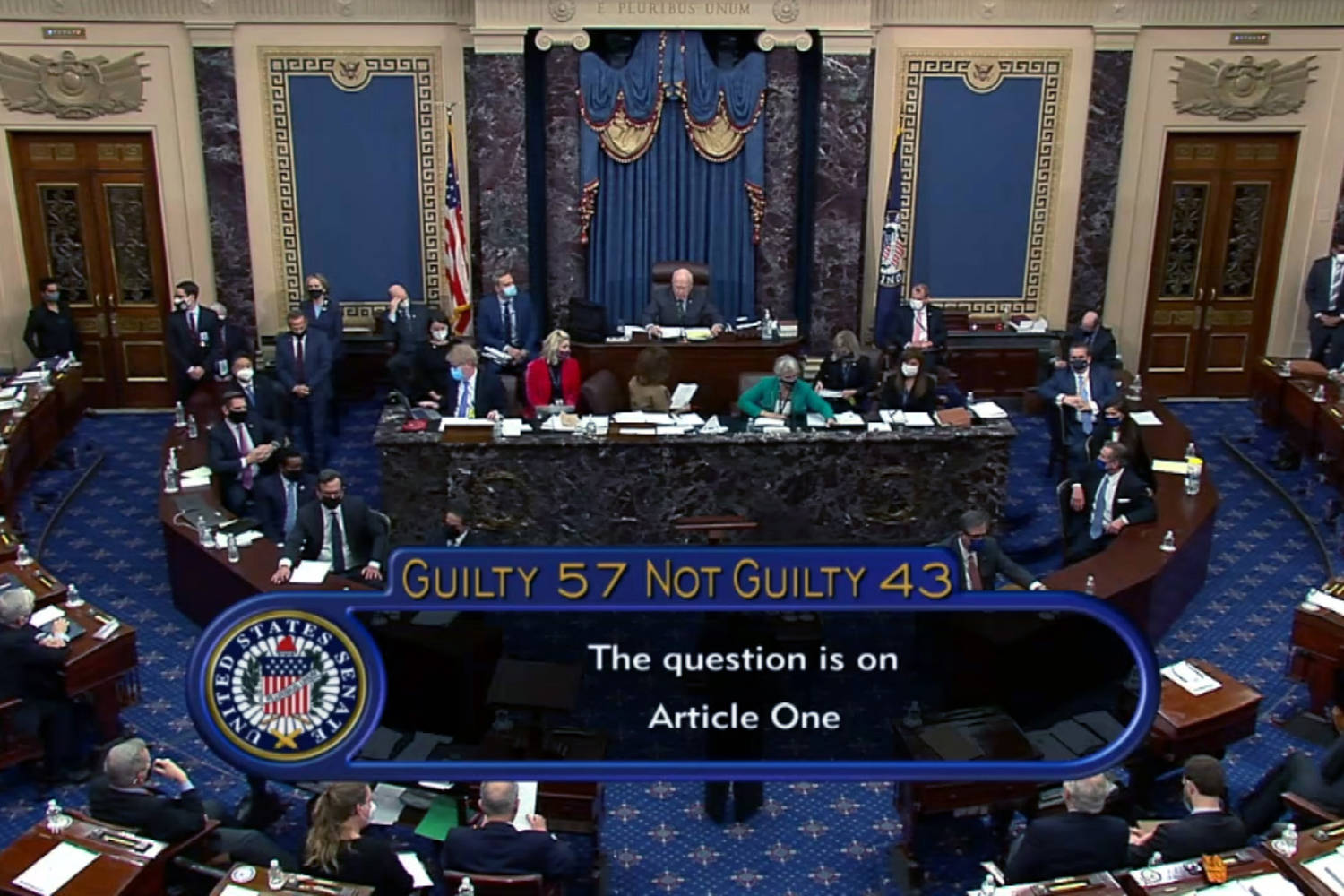
The Smithsonian’s National Museum of American History wants us to believe that there’s been a misunderstanding and that it’s not the latest major institution to wave a white flag before President Donald Trump.
In a move that critics worried could be an attempt to better align itself with Trump’s vision, the NMAH, as The Washington Post reported Thursday, removed mention of President Donald Trump’s impeachments from one of its main exhibitions, “The American Presidency: A Glorious Burden.” Congress leveled impeachment charges against Trump — twice. And Trump called the House of Representatives’ 2019 vote to impeach him “an embarrassment to the country.”
Trump called the House of Representatives’ 2019 vote to impeach him ‘an embarrassment to the country.’
But following accusations from Senate Minority Leader Chuck Schumer, D-N.Y., Friday that Trump was attempting to “rewrite history,” the museum said in a statement Saturday that information about Trump’s impeachment trials will be returned to the exhibit soon and that the placard mentioning those impeachments “did not meet the museum’s standards in appearance, location, timeline, and overall presentation.” The statement also said that the museum had not been “asked by any Administration or other government official to remove content from the exhibit.”
If you find that explanation hard to believe, that’s probably because the Smithsonian has been a preoccupation of Trump’s and his selectively backward-looking MAGA political movement. This year, Trump issued an executive order called “Restoring Truth and Sanity to American History” that blasted the Smithsonian’s acclaimed National Museum of African-American History and Culture as promoting “divisive race-centered ideology.” Shortly thereafter, Trump accused Kim Sajetthe director of the Smithsonian’s National Portrait Gallery, of being a “highly partisan person, and a supporter of DEI” and called for her removal. She eventually resigned.
In that initial Thursday report, The Washington Post’s Janay Kingsberry noted that the NMAH edited the “Limits of Presidential Power” section of its exhibition by turning back the clock and removing information about Trump’s impeachments that had been on display since September 2021. In a statement to the newspaper for Thursday’s story, Smithsonian spokesperson Phillip Zimmerman said, “The section of this exhibition covers Congress, The Supreme Court, Impeachmentand Public Opinion. Because the other topics in this section had not been updated since 2008, the decision was made to restore the Impeachment case back to its 2008 appearance.” The timing has understandably raised eyebrows.
Only after that story was published did the Smithsonian tell the newspaper that “a future and updated exhibit will include all impeachments.” In Saturday’s statement, the museum mentioned the appearance of the placard and said the update would be made “in the coming weeks.” For accuracy’s sake, we should hope so.
As it stands now, though, the section only includes President Andrew Jackson’s 1868 impeachment, President Bill Clinton’s 1998 impeachment and President Richard Nixon’s 1973 impeachment hearings. While Trump stands alone as the only U.S. president to be impeached twice, there’s presently no mention of this distinction.
The exhibit now says ‘only three presidents have seriously faced removal,’ but that hasn’t been true for almost six years.
As The Washington Post notes, the exhibit now says “only three presidents have seriously faced removal,” but that hasn’t been true for almost six years.
Though the Smithsonian insists it wasn’t pressured by Trump, The Washington Post’s Thursday report said the Trump references were removed from the impeachment exhibit after the Smithsonian undertook a full-scale content review following pressure from the White House and accusations of partisan bias. Again, that jibes with Trump’s statements about the Smithsonian’s museums and with his forcing out of the portrait gallery’s director.
Indeed, after months of political pressure, the Smithsonian announced in June that directors at all of the Smithsonian’s 21 museums and galleries were required to inspect their content and make any changes, including personnel changes, to “ensure unbiased content.”
Mention of Trump’s impeachments just so happened to be erased weeks later.
Over the decades, the Smithsonian has occasionally found itself ensnarled in political controversy and faced pressure to modify its exhibitions. For the 50th anniversary of the U.S. dropping atomic bombs on Japan, the Smithsonian’s Air and Space Museum repeatedly adjusted its content about the decisive action and its tragic fallout in response to political outrage over even a whiff of critical reflection about the bombings. Eventually, the museum canceled the exhibition altogether, and its director, Martin Harwit, resigned after Congress called for his removal and threatened to cancel funding.
More than a decade later, the National Portrait Gallery made headlines for pulling a video installation commenting on the 1980s AIDS crisis on the grounds it was sacrilegious.
Of course, we’d suspect Trump of being involved in the editing out of his impeachments when he and his MAGA political movement support censorship and revisionist histories that recast the United States and Trump himself as heroic and blameless.
Of course, we’d suspect Trump of being involved in the editing out of his impeachments.
Saturday’s statement from the Smithsonian says it hasn’t yielded to political pressure. Let’s hope that’s true, because like the dismantling of DEI programs and the multimillion-dollar settlements agreed to by universities under attack from Trump’s government, any capitulation from the Smithsonian would hit hard. We expect, we need more from our civil society institutions if they are to serve as a counterbalance to political and economic power. Civil society, which includes our public museums, libraries and universities, is not separate from politics or the economy, but it’s important that those institutions not be dictated by them.
Let’s face it: Like all colonial projects, museums are not neutral,but they have long been essential in supplementing school curricula, serving as research centers, educating American and international tourists, and contributing to regional economies. It’s impossible to imagine Washington, D.C., without the National Mall and its assorted museums, monuments and memorials. But it’s getting easier to imagine wild additions and deletions being made to them without truth or the public’s trust in mind.
This is especially the case considering that White House spokesperson Davis Ingle characterized the Smithsonian’s removal of Trump’s impeachments as an opportunity to better “highlight American greatness” rather than what the Trump administration considers “divisive” content. We’re left to wonder what further changes we’ll see, who will make the final call and with whose interests in mind.
Truthfully representing our national history, including the shameful parts and not just the heroic ones, is the Smithsonian’s glorious burden. Unfortunately, with the way this latest move was executed, there’s reason to doubt it’s up for the challenge.
Robyn Autry
Robyn Autry is a sociology professor and director of the Center for the Study of Public Life at Wesleyan University. She is the author of “Desegregating the Past: The Public Life of Memory in the U.S. and South Africa.”
The Dictatorship
Outrage over the Tea dating app highlights the indifference to women’s victimization

Calls to ban Tea Dating Advice, a women-only online dating safety app where users can share stories and information about men they dated, have exploded in recent weeks, driven by fears that reputations, especially of young men, could be damaged by anonymous and potentially false allegations of sexual misconduct. But what does it say about our cultural priorities when the potential for reputational harm against men sparks more outrage than the prevalence of sexual violence against women that online dating has facilitated for years?
Dating apps have long been associated with very real incidents of rape and other forms of sexual violence.
The Tea app was designed to help women avoid harmful dating partners, and it recently became the most downloaded free app on Apple’s App Store. With that increase in popularity came a public outcry, especially from among men — who cannot access the app. They argue that Tea encourages doxxing (the unwanted release of personal information) and enables the spread of intentionally false and defamatory stories that can ruin men’s reputations and dating prospects. Criticism of Tea has led to security breaches of the app and doxxing of the women who use it.
The potential for Tea to be misused for reputational damage has led to calls on social media for the app to be shut down entirely. Yet by this logic dating apps themselves shouldn’t exist.
Unwarranted reputational damage associated with the Tea app is largely speculative at this point, but dating apps have long been associated with very real incidents of rape and other forms of sexual violence. Studies across the United States and Australia consistently show that approximately 10% of reported incidents of rape are attributable to dating apps. This is likely an underestimate given the propensity for sexual violence to go unreported and the potential for online daters to cause sexual harm unintentionally due to misunderstandings regarding consent.
The majority of victims of sexual violence are women. Despite this knowledge, we seldom hear calls for dating apps to be shut down because of the role they play in sexual harm against women. We’ve certainly not heard any such calls expressed with the fervor that Tea’s opponents have expressed.
We seldom hear calls for dating apps to be shut down because of the role they play in sexual harm against women.
Not only are dating apps still as popular as ever, safety-oriented improvements in their design have been superficial at best. Almost every safety feature built into dating apps is reactive — such as user blocking and reporting features— meaning they require women to first be harmed before the feature can be used. It’s telling that Tea is a standalone app and not a feature built into any existing dating platform where users actually discover and chat with dating partners.
Tea is the first real advancement in online dating safety since…ever. It is certainly the most popular tool for women to avoid, rather than react to, online dating harm.
The Tea app should be controversial, but for very different reasons. Why is Tea the only dating safety technology for women to get mass attention in recent years?
What Tea really symbolizes is that women’s safety in online dating has been severely overlooked — to the point that some women even blame themselves for sexual harassment and apologize to their perpetrator for inconveniencing them in their pursuit of sexual gratification.
Because Tea addresses an underserved safety need doesn’t mean it should be exempt from criticism or that false accusations against men should be an acceptable side effect. Instead of calls to outright ban the app, though, we should be hearing more people asking for — and demanding — better dating safety technologies.
How could an app like Tea continue to provide safety benefits to women while also reducing the potential for false accusations against men? Research in my own lab consistently finds that men actually desire more dating advice and don’t always consciously realize how they could misinterpret sexual interest or engage in a behavior that may actually be unwanted.
Research finds that men don’t always consciously realize how they could misinterpret sexual interest or engage in behavior that may be unwanted.
Could the men being discussed on Tea want, and benefit from, feedback about their dating behavior? How could they be informed of reviews about them in ways that do not put women at risk of retaliation? Such questions are only examples of a much larger conversation that should be happening about how to make online dating safer.
Ultimately, the outcry against Tea is not just about one app. It reflects a larger debate over how we prioritize dating harms and the safety of people most likely to be hurt. What this debate reveals about us is troubling. Calls for Tea’s downfall proclaim that lies that cause reputational harm against men are unacceptable (and rightly so). But sexual harm against women? The silence suggests that we consider that an allowable consequence of dating apps. Because if we took sexual violence against women as seriously as we take the potential hit on men’s reputation, then we’d hear calls to ban the multitude of dating apps filling our phones.
Douglas Zytko
Douglas Zytko is an associate professor in the College of Innovation & Technology at University of Michigan-Flint. His research uses consent as a lens to study and design mitigative solutions for computer-mediated sexual violence, particularly in the context of online dating.
-
Uncategorized9 months ago
Bob Good to step down as Freedom Caucus chair this week
-

 The Josh Fourrier Show9 months ago
The Josh Fourrier Show9 months agoDOOMSDAY: Trump won, now what?
-

 Politics9 months ago
Politics9 months agoWhat 7 political experts will be watching at Tuesday’s debate
-

 Politics9 months ago
Politics9 months agoHow Republicans could foil Harris’ Supreme Court plans if she’s elected
-
Economy9 months ago
Fed moves to protect weakening job market with bold rate cut
-

 Politics9 months ago
Politics9 months agoRFK Jr.’s bid to take himself off swing state ballots may scramble mail-in voting
-
Economy9 months ago
It’s still the economy: What TV ads tell us about each campaign’s closing message
-

 The Dictatorship6 months ago
The Dictatorship6 months agoPete Hegseth’s tenure at the Pentagon goes from bad to worse




